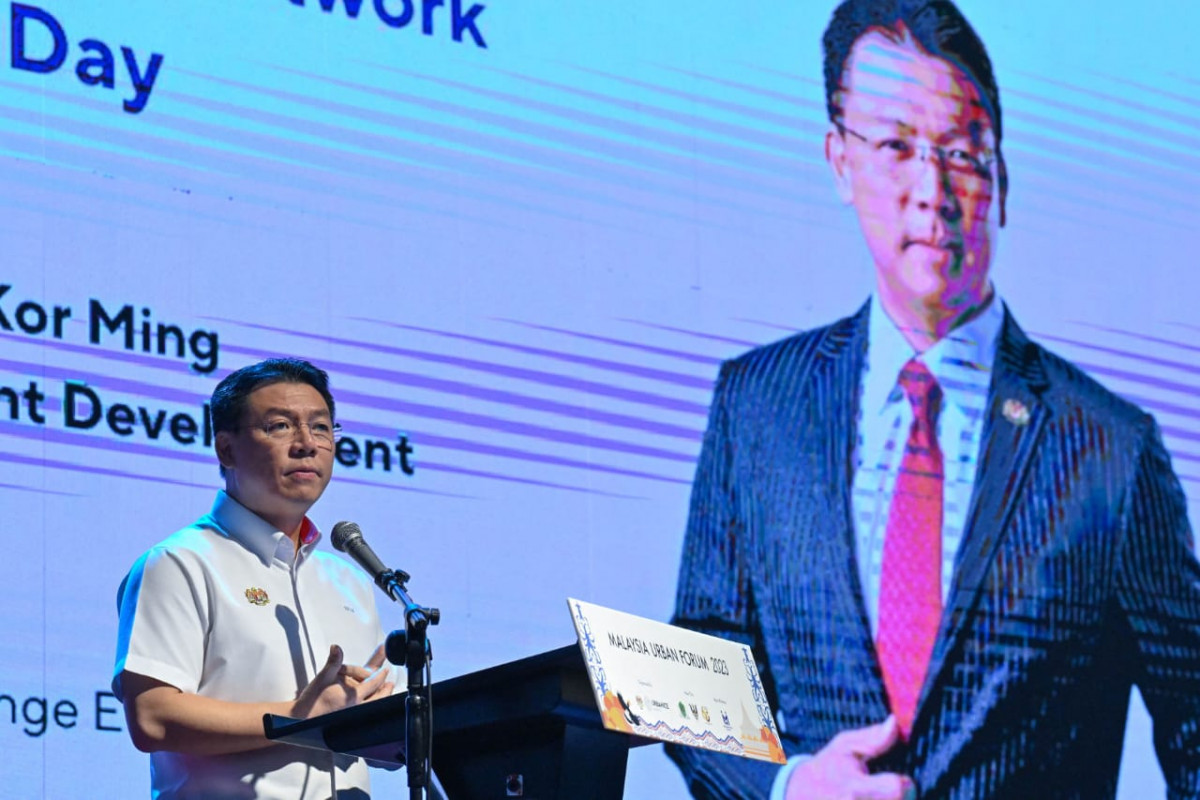RM50 mil for green roadside kiosks next year, says Nga Kor Ming

- “We have already started the green kiosk project across the country, whereby this year, the government spent RM50 million to set up 3,073 green kiosks using recyclable materials, with the aim to legalise the illegal roadside traders, besides enhancing the circular economy.”
KUALA LUMPUR (Nov 8): The Ministry of Local Government Development (KPKT) will allocate RM50 million for green infrastructure made out of recyclable materials from Tetra Pak packaging, said its minister, Nga Kor Ming (pictured).
“We have already started the green kiosk project across the country, whereby this year, the government spent RM50 million to set up 3,073 green kiosks using recyclable materials, with the aim to legalise the illegal roadside traders, besides enhancing the circular economy,” said Nga in his speech as he witnessed the memorandum of understanding exchange between Tetra Pak, Nestlé Malaysia, SHA-Hup Aik and the local councils for CAREton Project.
“Next year, we are prepared to spend another RM50 million, and this time, we are going to use the Tetra Pak products as the pilot project to see if the material is weather-resistant, habitable and sustainable compared to the conventional method. Collaborative efforts between public and private is important not only protect our environment but also enhance our economic prospects.”
In conjunction with Hari Kitar Semula Negara (National Recycling Day), Nestlé Malaysia and Tetra Pak on Wednesday celebrated their 11th year of partnership through CAREton Project.
The celebration was further marked with the addition of three new councils to the CAREton Project, which are Majlis Bandaraya Seberang Perai, Majlis Perbandaran Ampang Jaya and Majlis Bandaraya Ipoh.
The CAREton Project is a collaborative effort between Nestlé Malaysia, Tetra Pak and local councils to collect and recycle used beverage cartons. The project aims to raise awareness about the importance of recycling and motivates consumers to recycle their used beverage cartons.
Since 2012, the CAREton Project has collected over 4,000 tonnes of used beverage cartons, which has been recycled and converted into poly-aluminium (polyAl) panel boards and roofing tiles. These tiles were used to build over 1,400 homes for Orang Asli communities, which is equivalent to more than 283 million packs of used beverage cartons.
“Developing a sustainable recycling programme is a collaborative effort that requires active participation from everyone in the recycling value chain. Tetra Pak and Nestlé Malaysia encourage all Malaysians to participate in the CAREton Project and recycle their used beverage cartons to contribute to a circular economy,” said Michael Wu, managing director of Tetra Pak Malaysia, Singapore, the Philippines and Indonesia.
The project establishes convenient collection points for Malaysians to recycle their used beverage cartons. These collection points can be found at participating local councils, schools, universities and retailers.
Once collected, the used beverage cartons are transported to a dedicated recycling facility, where they are recycled into new products such as roof tiles and panel boards. These roof tiles and panel boards are then donated to EPIC Homes, non-governmental organisations and other community projects for use in building homes and refurbishment projects for Orang Asli communities and other people in need.
"One of Nestlé’s vision is to ensure that none of our packaging ends up in landfills. In line with this, the CAREton Project is one of the multiple initiatives of Nestlé’s sustainable packaging and circularity strategy, which also includes our Project SAVE, that are implemented through our Strata Recycling, Door-to-Door Collection and KITAR Recycling programmes," said Juan Aranols, CEO of Nestlé Malaysia.
Zain Azly Abdul Rahman, director of Petaling Jaya City Council (MBPJ) Department of Solid Waste Management and Public Cleansing, said the city council has partnered with CAREton Project since 2019 with community recycling campaign called “Kotak Kuning” (Yellow Recycling Bin), to make recycling of dry domestic wastes convenient for the neighbourhood.
“By 2025, we [MBPJ] are aiming to get 30% of households to participate in in-house waste segregation for seamless transfer of recyclable waste to KPKT. Right now, we have 15% of households in Petaling Jaya participating towards this cause since 2019,” he said.
“We will provide more Yellow Recycling Bin to neighbourhoods that are actively participating in recycling dry, solid wastes.”
Looking to buy a home? Sign up for EdgeProp START and get exclusive rewards and vouchers for ANY home purchase in Malaysia (primary or subsale)!
Never miss out
Sign up to get breaking news, unique insights, event invites and more from EdgeProp.
Latest publications
Malaysia's Most
Loved Property App
The only property app you need. More than 200,000 sale/rent listings and daily property news.
